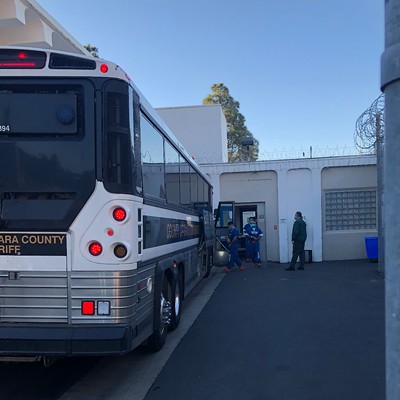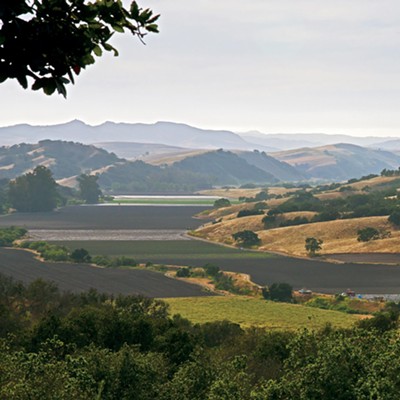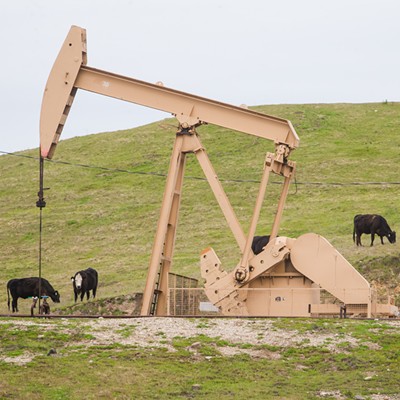• U.S. Rep. Salud Carbajal (D-Santa Barbara) announced that his work securing a boost in funding for federal Head Start programs delivered more than $19 million in grants for Central Coast early learning programs in Santa Barbara and San Luis Obispo counties, according to a March 22 statement from the congressman’s office. Carbajal, who worked as a Head Start parent involvement coordinator and family services advocate, has advocated for increased funding for early learning programs like Head Start and Early Head Start. “I saw firsthand the huge impacts that their programming can have in giving every child on the Central Coast the chance to receive a high-quality education,” Carbajal said in a statement. “That’s why I’ve pushed every year that I’ve been in Congress to increase the funding for these programs, and to ensure the Central Coast has the resources it needs to help our local Head Start providers maintain this critical community service. After delivering nearly a billion-dollar increase in last year’s funding package, I’m proud to see the Central Coast benefit from this robust increase this year.” The U.S. Department of Health and Human Services, which last December received a $960 million boost in Head Start funding, approved more than $12.9 million for the Community Action Partnership of San Luis Obispo County and $6.2 million for CommUnify—formerly the Community Action Commission of Santa Barbara County.
• U.S. Sen. Alex Padilla (D-California) and U.S. Rep. Doug LaMalfa (R-Oroville) wrote a letter to the U.S. Bureau of Land Management (BLM), urging it to conduct extensive outreach to tribal governments as the lawmakers implement their Recreation and Public Purposes Tribal Parity Act, which President Joe Biden signed into law earlier this year, according to a March 23 statement from Padilla’s office. The Recreation and Public Purposes Tribal Parity Act ensures that tribal governments have parity with state and local governments in participating in the Recreation and Public Purposes Act (R&PP). This existing program previously only allowed BLM to sell and lease certain public lands to state and local governments and qualifying nonprofits, often significantly below market value, if those lands were used for recreation or other public purposes. But unlike state and local governments, tribal governments were omitted when the act first became law in 1926. “This law can have a much more widespread impact for tribal governments in California and across the nation, which is why we write to ask that the BLM conduct extensive outreach to tribal governments about the opportunities for land acquisition and conveyance under the R&PP,” the lawmakers wrote. “While state and local governments have been leasing and purchasing public lands for recreational or public purposes for over a century, it is unlikely that tribal governments across the country are aware of the opportunities under R&PP following enactment of our legislation. Conducting this outreach would also help BLM fulfill its trust responsibility to tribal governments.”
• Gov. Gavin Newsom rolled back some drought emergency provisions that are no longer needed due to current water conditions, while maintaining other measures that support regions and communities still facing water supply challenges and that continue building up long-term water resilience, according to a March 24 statement from the governor’s office. Specifically, the state ended the voluntary 15 percent water conservation target and the requirement that local water agencies implement level 2 of their drought contingency plans; maintained the ban on wasteful water uses like watering ornamental grass on commercial properties and orders on specific watersheds like the Klamath River and Colorado River basins; preserved all current emergency orders on groundwater supplies; and retained a state of emergency in all 58 counties to allow for drought response and recovery efforts to continue. “We’re all in this together, and this state has taken extraordinary actions to get us to this point. The weather whiplash we’ve experienced in the past few months makes it crystal clear that Californians and our water system have to adapt to increasingly extreme swings between drought and flood,” Newsom said in a statement. “As we welcome this relief from the drought, we must remain focused on continuing our all-of-the-above approach to future-proofing California’s water supply.”










